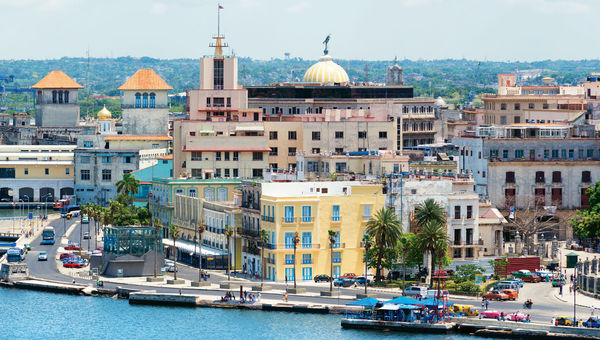After November's historic midterm election, in which Democrats picked up 40 seats in the House of Representatives, the largest gain for the party since 1974, many wondered if the shift would impact Cuba travel policy.
The answer is yes, most travel executives and Cuba experts say, but they warn that it's unlikely to happen in 2019. With the Senate and White House still in Republican hands, a full return to the Obama-era relaxation of travel restrictions is unlikely.
"I think we'll see free-standing bills to undo the Cuba travel ban introduced in both chambers and perhaps even pass the House," said Eben Peck, ASTA's executive vice president for advocacy, who added that language to ease or undo altogether the travel ban included in budget legislation might pass one or both chambers.
But Peck said, "I think the chances of a repeal of the Cuba travel ban passing both chambers and being signed into law by the president remain slim, given the intensity of feelings on this subject among some members of Congress and President Trump's opposition to any new easing of Cuba policy."
The Society has long advocated lifting the Cuba travel ban. In 2017, in response to Trump's rollback of the relaxed Obama-era policies, Peck said that "our government should not be in the business of telling Americans where to travel or not to travel."
Tom Popper, president of the tour operator InsightCuba, also said he thinks there won't be much change over the next two years, though he's not ruling anything out.
"It's too early to really tell," he said recently. "However, it's likely that we may see more bipartisan efforts from the House in favor of Cuba travel. Whether they go anywhere with the Senate and the White House is difficult to say."
Popper said the next few weeks and months will be important, as special-interest groups try to curry favor with the incoming Congress regarding Cuba policy.
"It will be interesting to see how the various committees shape up and what their priorities might be," Popper said.
While InsightCuba remains in a wait-and-see mode, Popper, whose tours run within the parameters of legal Cuba travel, said that despite Trump's policy rollback, his business is up 25% this year.
"The good news is travel to Cuba remains an easy and a popular choice for Americans," Popper said.

Photo Credit: In 2019, change could once again come to Cuba travel policy.
However, there are some indications there could be real Cuba policy change.
One of the more significant developments to come out of the midterm election is the change in South Florida's political landscape. In 2019, there will be only one Cuban-American Republican from South Florida in the House of Representatives for the first time since 1993, Mario Diaz-Balart. Two other Cuban-American Republican candidates lost their races.
James Williams, president of Engage Cuba, a coalition of private companies and organizations advocating an end to the travel and trade embargo, said this South Florida voting shift has been years in the making and is finally showing results.
"Flipping the two Cuban-American House seats in Miami, held for decades by hardliners, creates a new opportunity in Congress," Williams said.
Williams added that for many years it has been the House, not the Senate, that blocked any legislation to end the embargo. The Freedom for Americans to Travel to Cuba Act of 2017, a bipartisan bill introduced by Sens. Jeff Flake (R-Ariz.) and Patrick Leahy (D-Vt.), would have eliminated restrictions on travel to Cuba. Although 56 senators voted for it, the House blocked it.
"We've had luck in the Senate in the past, even under Republican control," Williams said. "The issue has really been the House. So there's no guarantee, but there's certainly a much better situation now than before the election."
The wild card, Williams said, is Trump. "It's anyone's guess on a daily basis what this White House will do," he said.
Judging from recent action, the administration does not appear to be backing down from its hard line on Cuba. The State Department recently added 26 businesses to the list of places that are off-limits to American tourists because of their relationship to the Cuban military, including 16 hotels.